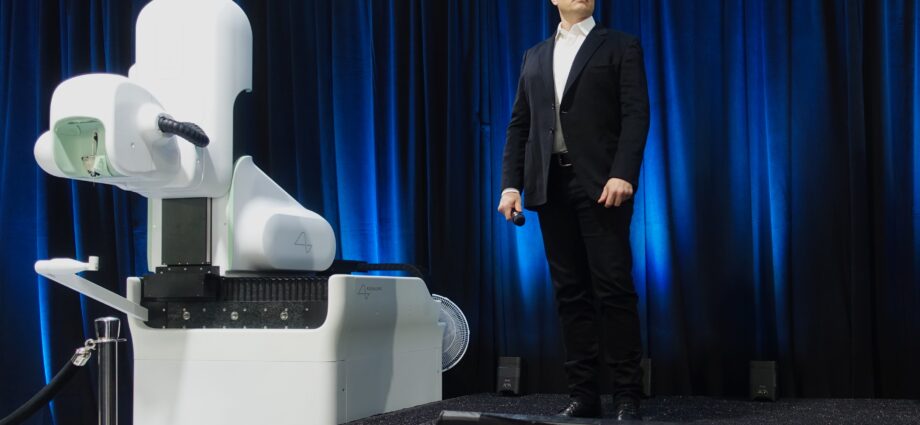
Brain implant startup granted the go-ahead for pioneering study to assist paralysis patients
September 20, 2023
An independent review board has given Neuralink, billionaire entrepreneur Elon Musk’s brain implant startup, approval to recruit paralysis patients for its inaugural human trial.
The groundbreaking study aims to test an experimental brain-computer interface (BCI) device designed to assist individuals suffering from paralysis, particularly those with cervical spinal cord injuries or amyotrophic lateral sclerosis (ALS).
As Neuralink explains, the BCI implants will be surgically placed in participants’ brains, using robots, in the regions controlling movement. The objective: Allow participants to control computer cursors or keyboards using their thoughts alone.
The trial, spanning approximately six years, represents a critical milestone in Neuralink’s pursuit of revolutionizing brain technology. When and where the trials will take place remains unknown, as does the number of participants.
This development follows Neuralink’s previous efforts to obtain regulatory clearance for human trials. Last year, the Food and Drug Administration (FDA) initially denied the request for expedited trials, but subsequently granted an investigational device exemption (IDE) in May, allowing the brain device to be used in clinical studies.
Elon Musk’s company, however, still faces ongoing scrutiny regarding its previous tests on animals. Former Neuralink employees have raised concerns about the handling of animal trials, saying they caused unnecessary suffering.
This has prompted investigations by multiple regulatory bodies, including the Department of Agriculture and the Department of Transportation, probing alleged animal abuse and biohazardous material mishandling.
If the implant trial demonstrates the safety and efficacy of the BCI device, Musk says it could potentially pave the way for extensive applications in treating various medical conditions, including obesity, autism, depression, and schizophrenia.
However, experts caution that even with positive human study outcomes, securing commercial use clearance may take more than a decade.
Subscribe to our newsletter.
This article was originally published on IMPAKTER. Read the original article.


